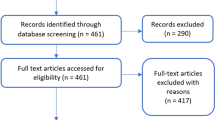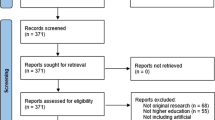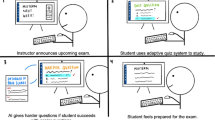Abstract
Computer scoring of student written essays about an inquiry topic can be used to diagnose student progress both to alert teachers to struggling students and to generate automated guidance. We identify promising ways for teachers to add value to automated guidance to improve student learning. Three teachers from two schools and their 386 students participated. We draw on evidence from student progress, observations of how teachers interact with students, and reactions of teachers. The findings suggest that alerts for teachers prompted rich teacher–student conversations about energy in photosynthesis. In one school, the combination of the automated guidance plus teacher guidance was more effective for student science learning than two rounds of personalized, automated guidance. In the other school, both approaches resulted in equal learning gains. These findings suggest optimal combinations of automated guidance and teacher guidance to support students to revise explanations during inquiry and build integrated understanding of science.


Similar content being viewed by others
References
Alavi, H., Dillenbourg, P., & Kaplan, F. (2009). Distributed awareness for classroom orchestration. In U. Cress, V. Dimitrova, & M. Specht (Eds.), Learning in the synergy of multiple disciplines (pp. 211–225). Berlin: Springer.
Anderson, J. R., Corbett, A. T., Koedinger, K. R., & Pelletier, R. (1995). Cognitive tutors: Lessons learned. Journal of the Learning Sciences, 4, 167–207.
Berland, L. K., & Reiser, B. J. (2011). Classroom communities’ adaptations of the practice of scientific argumentation. Science Education, 95(2), 191–216.
Davis, E., Petish, D., & Smithey, J. (2006). Challenges new science teachers face. Review of Educational Research, 76, 607–651.
diSessa, A. A. (2006). A history of conceptual change research: Threads and fault lines. In K. Sawyer (Ed.), Cambridge handbook of the learning sciences (pp. 265–281). Cambridge: Cambridge University Press.
Furtak, E. M., Seidel, T., Iverson, H., & Briggs, D. C. (2012). Experimental and quasi-experimental studies of inquiry-based science teaching: A meta-analysis. Review of Educational Research, 82, 300–329.
Gerard, L. F., & Linn, M. C. (2015). How do you design automated guidance for students’ writing in inquiry science? In K. Lavonen, K. Juuti, J. Lampiselkä, A. Uitto & K. Hahl (Eds.), Science education research: Engaging learners for a sustainable future. Proceedings of the 11th biannual conference of the European Science Education Research Association (ESERA). Helsinki, Finland.
Gerard, L., & Linn, M. C. (2016). Examining the impacts of annotation and automated guidance on essay revision and science learning. In Proceedings of the 12th international conference of the learning sciences (ICLS). National Institute of Education, Singapore.
Gerard, L., Matuk, C., McElhaney, K., & Linn, M. C. (2015). Automated, adaptive guidance for K-12 education. Educational Research Review, 15, 41–58.
Gerard, L., Ryoo, K., McElhaney, K., Liu, L., Raferty, A., & Linn, M. C. (2016). Automated guidance for student inquiry. Journal of Educational Psychology, 108(1), 60–81.
Hagemans, M. G., van der Meij, H., & de Jong, T. (2013). The effects of a concept map-based support tool on simulation-based inquiry learning. Journal of Educational Psychology, 105(1), 1–24.
Herrenkohl, L. R., Tasker, T., & White, B. Y. (2011). Developing classroom cultures of inquiry and reflection using Web of Inquiry. Cognition and Instruction, 29(1), 1–44.
Howe, C., & Tolmie, A. (2003). Group work in primary school science: Discussion, consensus and guidance from experts. International Journal of Educational Research, 39, 51–72.
Howe, C., Tolmie, A., Duchak-Tanner, V., & Rattray, C. (2000). Hypothesis testing in science: Group consensus and the acquisition of conceptual and procedural knowledge. Learning & Instruction, 10, 361–391.
Koedinger, K., McLaughlin, E. A., & Heffernan, N. (2010). A quasi-experimental evaluation of an on-line formative assessment and tutoring system. Journal of Educational Computing Research, 43, 489–510.
Leinhardt, G., & Steele, M. (2005). Seeing the complexity of standing to the side: Instructional dialogues. Cognition & Instruction, 23, 87–163.
Linn, M. C., & Eylon, B.-S. (2011). Science learning and instruction: Taking advantage of technology to promote knowledge integration. New York: Routledge.
Linn, M. C., Palmer, E., Baranger, A., Gerard, L., & Stone, E. (2015). Improving undergraduate research experiences: What works? Science, 347(6222), 627–633.
Liu, O. L., Brew, C., Blackmore, J., Gerard, L. F., Madhok, J., & Linn, M. C. (2014). Automated scoring of constructed response science Items: Prospects and obstacles. Educational Measurement: Issues and Practice, 33, 19–28.
Liu, O. L., Lee, H.-S., Hofstetter, C., & Linn, M. C. (2008). Assessing knowledge integration in science: Construct, measures and evidence. Educational Assessment, 13, 33–55.
Liu, O. L., Lee, H. S., & Linn, M. C. (2011). Measuring knowledge integration: Validation of four-year assessments. Journal of Research in Science Teaching, 48, 1079–1107.
Liu, O. L., Rios, J., Heilman, M., Gerard, L. F., & Linn, M. C. (2016). Validation of automated scores of science assessments. Journal of Research in Science Teaching, 53, 215–233.
Militello, M., Schweid, J., & Sireci, S. (2010). Formative assessment systems: Evaluating the fit between school districts ‘needs and assessment systems’ characteristics. Educational Assessment, Evaluation and Accountability, 22, 29–52.
National Research Council. (2012). A framework for K-12 science education: Practices, crosscutting concepts, and core ideas. Washington, DC: National Academy Press.
Roschelle, J., Dimitriadis, Y., & Hoppe, U. (2013). Classroom orchestration: Synthesis. Computers & Education, 69, 523–526.
Roscoe, R. D., & McNamara, D. S. (2013). Writing Pal: Feasibility of an intelligent writing strategy tutor in the high school classroom. Journal of Educational Psychology, 105(4), 1010–1025.
Roth, K., Garnier, H., Chen, C., Lemmens, M., Schwille, K., & Wickler, N. (2011). Video-based lesson analysis: Effective science professional development for teacher and student learning. Journal of Research in Science Teaching, 48, 117–148.
Ruiz-Primo, M. A., & Furtak, E. M. (2007). Exploring teachers’ informal formative assessment practices and students’ understanding in the context of scientific inquiry. Journal of Research in Science Teaching, 44, 57–84.
Schroeder, C. M., Scott, T. P., Tolson, H., Huang, T.-Y., & Lee, Y.-H. (2007). A meta-analysis of national research: Effects of teaching strategies on student achievement in science in the United States. Journal of Research in Science Teaching, 44, 1436–1460.
Sharples, M. (2013). Shared orchestration within and beyond the classroom. Computers & Education, 69, 504–506.
Shepard, L. (2000). The role of assessment in a learning culture. Educational Researcher, 29(7), 4–14.
Sherin, M., & van Es, E. (2009). Effects of video club participation on teachers’ professional vision. Journal of Teacher Education, 60(1), 20–37.
Sisk-Hilton, S. (2009). Teaching and learning in public: Professional development through shared inquiry. Columbia, NY: Teachers College Press.
Talenquer, V., Tomanek, D., & Novodvorsky, I. (2013). Assessing students’ understanding of inquiry: What do prospective science teachers notice? Journal of Research in Science Teaching, 50, 189–208.
Tissenbaum, M., Lui, M., & Slotta, J. D. (2011). Co-designing collaborative smart classroom curriculum for secondary school science. Journal of Universal Computer Science, 18(3), 327–352.
van Es, E. A., & Sherin, M. G. (2002). Learning to notice: Scaffolding new teachers’ interpretations of classroom interactions. Journal of Technology and Teacher Education, 10(4), 571–596.
Wichmann, A., & Leutner, D. (2009). Inquiry learning: Multilevel support with respect to inquiry, explanations, and regulation during an inquiry cycle. Zeitschrift für Pädagogische Psychologie, 23(2), 117–127.
Acknowledgments
This material is based upon work supported in part by the National Science Foundation under Grant DRL-1119670: Continuous Learning and Automated Scoring in Science (CLASS). Any opinions, findings, and conclusions or recommendations expressed in this material are those of the authors and do not necessarily reflect the views of the National Science Foundation.
Author information
Authors and Affiliations
Corresponding author
About this article
Cite this article
Gerard, L.F., Linn, M.C. Using Automated Scores of Student Essays to Support Teacher Guidance in Classroom Inquiry. J Sci Teacher Educ 27, 111–129 (2016). https://doi.org/10.1007/s10972-016-9455-6
Published:
Issue Date:
DOI: https://doi.org/10.1007/s10972-016-9455-6




